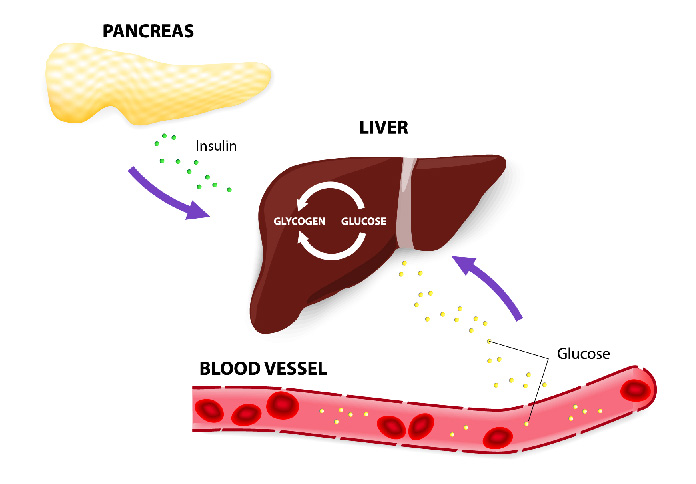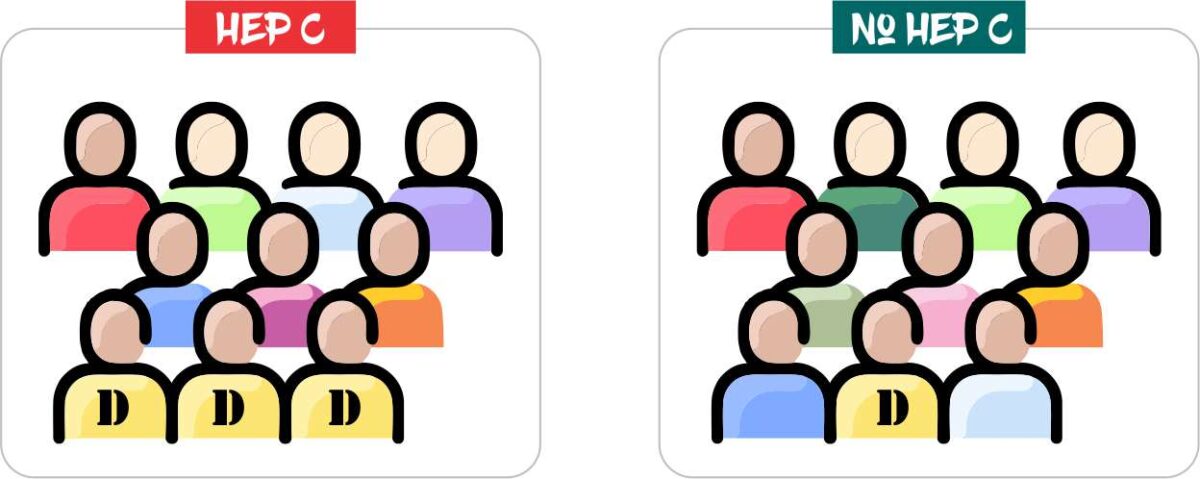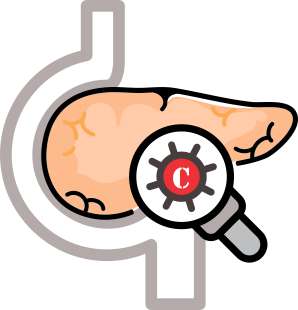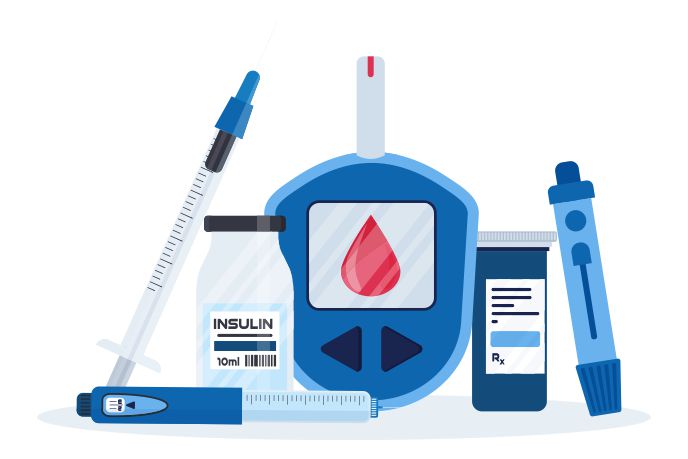Most people don’t know of the link between viral hepatitis and diabetes, two chronic conditions common in Australia. Understanding the relationship between these diseases can help in their management and minimise poor outcomes.
The connection between diabetes and hepatitis lies in the liver’s key role in storing glucose in the body. Diabetes is a disease caused by too much glucose in the blood so when the liver’s ability to process and store glucose is impaired, the risk of diabetes increases. Studies have shown that people with chronic hepatitis B and hepatitis C – especially hepatitis C – are at greater risk of developing diabetes. On the other hand, people with diabetes are found to be at greater risk of succumbing to viral hepatitis.

Not surprisingly, the demographic groups with higher rates of these two chronic diseases are similar, so Hepatitis SA and Diabetes SA have come together to look at providing shared education sessions to some of these communities. Topics covered will include the basics of diabetes and hepatitis, how to prevent them, how to manage the conditions if you have them and where to get treatment and support.
What is Viral Hepatitis?
Hepatitis is inflammation of the liver. Inflammation of the liver caused by a virus is viral hepatitis. The main strains of hepatitis viruses are A, B, C, D and E. The most common strains that cause chronic disease are B and C. Over 200,300 Australians live with chronic hepatitis B and 115,000 with chronic hepatitis C. In South Australia 10,180 live with hepatitis B and 8,870 hepatitis C.
Hepatitis C can be cured with tablets taken daily for 8 or 12 weeks. Hepatitis B can be clinically managed but there is currently no cure although there is a safe, effective vaccine. Hepatitis B and hepatitis C are the leading causes of liver cancer in Australia.

What is Diabetes?
Diabetes Mellites – usually known simply as diabetes – is a chronic disease where there’s too much glucose in your blood. According to the Australian Bureau of Statistics, diabetes prevalence in Australia has increased from 3.3 per cent in 2001 to 5.3 per cent in 2022. It is the seventh leading cause of death in Australia.
Most people would be aware that there are two types of diabetes: Type 1 and Type 2. Your pancreas produces insulin which is needed to properly process glucose. Type 1 diabetes develops when your pancreas can’t produce insulin and Type 2 occurs when your pancreas can’t make enough insulin, or your body is unable to use it properly.
Our body’s glucose is stored in the muscles and liver. Liver disease can lead to a fatty or scarred liver compromising its ability to work properly. This can lead to high blood glucose levels.
Hepatitis and Diabetes Onset
People living with chronic hepatitis C are at higher risk of developing Type 2 diabetes. Studies have shown that they can be up to three times more likely to develop diabetes than those without hepatitis C. Although liver disease in general is linked to the development of Type 2 diabetes, studies have shown a stronger link with chronic hepatitis C.

The higher rate of diabetes in people with chronic hepatitis C could be due to the fact that they are more likely to develop fatty liver than people with other liver diseases. Additionally, the hepatitis C virus affects not only the liver but other organs as well, affecting the body’s ability to turn food into energy and get rid of waste. Studies have found hepatitis C virus in the pancreas; this could affect the pancreas’ ability to produce insulin.

While the link between chronic hepatitis B and diabetes isn’t as consistent as it is for chronic hepatitis C, some studies indicate a higher rate of diabetes among individuals with hepatitis B compared to the general population. This could be due to damage to liver cells caused by the hepatitis B virus. One of the liver’s important roles is maintaining normal glucose levels in the bloodstream; that function could be impaired when liver cells are damaged.
Interestingly, another study has found that those who have been successfully vaccinated against hepatitis B were less likely to develop diabetes compared to those who have not received the vaccine, with the risk of diabetes onset reduced by up to 33 per cent.
Studies have also shown that pregnant women with hepatitis B have a higher risk of developing gestational diabetes which may cause complications at birth.

Diabetes and Viral Hepatitis Infection
Coming from the other direction, studies have found that the risk of hepatitis B or hepatitis C infection was higher in people with diabetes than in those without. One study found that people with diabetes 1.7 times more likely to have chronic hepatitis C than people without diabetes.
The association between lower income and diabetes, and worse outcomes is similar to the association between poverty and chronic hepatitis C. People with diabetes are at increased risk for blood-borne infections if they don’t have their own diabetes-care equipment such as syringes, insulin pens, blood glucose meters and finger-stick devices and need to share them with others. Blood contaminants on the equipment, plus the more frequent use of injecting equipment in some cohorts could exacerbate the risk of contracting hepatitis C.

Where to From Here?
The liver is an important link in the management of chronic diabetes which often leads to liver cirrhosis. Diabetes and hepatitis co-infection leads to worse outcomes therefore education to increase understanding the risks and options in managing these conditions are vital.
Hepatitis B can be prevented with an effective vaccine and health agencies often recommend hepatitis B vaccination for people with diabetes who don’t already have hepatitis B immunity.

Hepatitis C can be cured with tablets in eight or twelve weeks and, in Australia, is covered by Medicare. Hepatitis SA recommends that people with diabetes consider testing for hepatitis C and going on treatment should the test show they have the virus.

Although there is no cure for diabetes, regular monitoring and lifestyle changes can help you stay healthy and avoid bad health outcomes.
Diabetes SA provides ongoing comprehensive support to members on managing and living well with diabetes, including information sheets and online courses. They administer the federal government National Diabetes Services Scheme (NDSS), which helps people living with diabetes to access reliable services and affordable products. For more information: visit their website or call 1300 198 204.
Hepatitis SA provides free information and education on hepatitis B and hepatitis C transmission prevention, testing, management, treatment and living well with viral hepatitis. It runs free hepatitis C rapid testing clinics with referrals to the viral hepatitis nurses for follow-up on treatment or vaccination. It also maintains the only online hepatitis specialist library in Australia. For more information: visit our website or call 1800 437 222.
View easy-read explainer on hepatitis and diabetes in English and Chinese.
References:
Zhao, Y., Xing H., Wang,X. et al. Management: Management of Diabetes Mellitus in Patients with Chronic Liver Diseases. Journal of Diabetes Research 14/12/2019; https://www.ncbi.nlm.nih.gov/pmc/articles/PMC6931017/
Han, J.Y., Kwon J.H., Kim S.H., Lee H; Hepatitis Risk in Diabetes Compared to Non-Diabetes and Relevant Factors: A Cross Sectional Study with National Health and Nutrition Examination Survey (NHANES), 2013–2018, International Journal of Environmental Research and Public Health 11/03/2023
https://www.ncbi.nlm.nih.gov/pmc/articles/PMC10049568/
Hammerstad S et al, Diabetes and hepatitis C: a two-way association, Frontiers in Endocrinology, 14/09/2015; https://www.frontiersin.org/articles/10.3389/fendo.2015.00134/full
Hong, Y., Chang, Y., Ryu, S. et al. Hepatitis B and C virus infection and diabetes mellitus: A cohort study. Scientific Reports 04/07/2017. https://doi.org/10.1038/s41598-017-04206-6
Huang, J., Ou, H., Lin J., et al, The Impact of Hepatitis B Vaccination Status on the Risk of Diabetes, Implicating Diabetes Risk Reduction by Successful Vaccination, PLOS ONE, 28/10/2015 https://www.ncbi.nlm.nih.gov/pmc/articles/PMC4624985/
Diabetes and Hepatitis B Vaccination – Information for Diabetes Educators, Centers for Disease Control and Prevention (cdc.gov), Oct 2012, accessed 11/03/2024 https://www.cdc.gov/diabetes/pubs/pdf/hepb_vaccination.pdf
Living with Hepatitis B and Diabetes, Hepatitis B Foundation, 30/11/2022, accessed 11/03/2024 https://www.hepb.org/blog/living-hepatitis-b-diabetes/
Diabetes and Hepatitis B – What you need to know, Hawaiian State Department of Health, accessed 11/03/2024 https://health.hawaii.gov/docd/files/2018/12/Diabetes_HepB_Factsheet.pdf
Last updated 16 July 2024
More from:
Enjoyed this article? Subscribe to be notified whenever we publish new stories.
Subscribe for Updates









